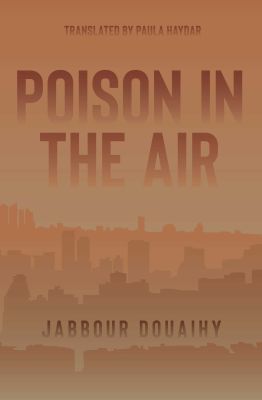Poison in the Air, Jabbour Douaihy's final novel, chronicles the decades of social, political, and economic turmoil leading up to and including the recent collapse of his beloved Lebanon after the horrific explosion that occurred at the Port of Beirut in 2020. Douaihy brings a multitude of bottled-up toxicity to the surface, as though he is writing his last letter to the world, or a suicide note for Lebanon, as he paints a picture of a society marching down a path to self-destruction. A first-person narration by an unnamed male protagonist, his generation's journey - like his country's history - seems to echo that of the phoenix. While that mythical creature is continually reborn from its own ashes, ever resilient, we now see it once again plummeting back into the fire, but as if nearly defeated, 'filled with the poison of disappointments.' (Elias Khoury, L'Orient Litteraire, 2021) As imagined by Douaihy, being cut off from others and absorbed in self-interest brings out humanity's most lethal, destructive nature. Poison in the Air might serve as a warning to us all about the dangers of isolation and polarization, about what happens when we 'sentence ourselves' to listening only to our own voices. The novel's bleak portrayal reflects how essential it is to break out of self-contained bubbles and, like the butterfly he depicts striving toward the light, reunite with the outside world and re-embrace others, in body and in spirit.

